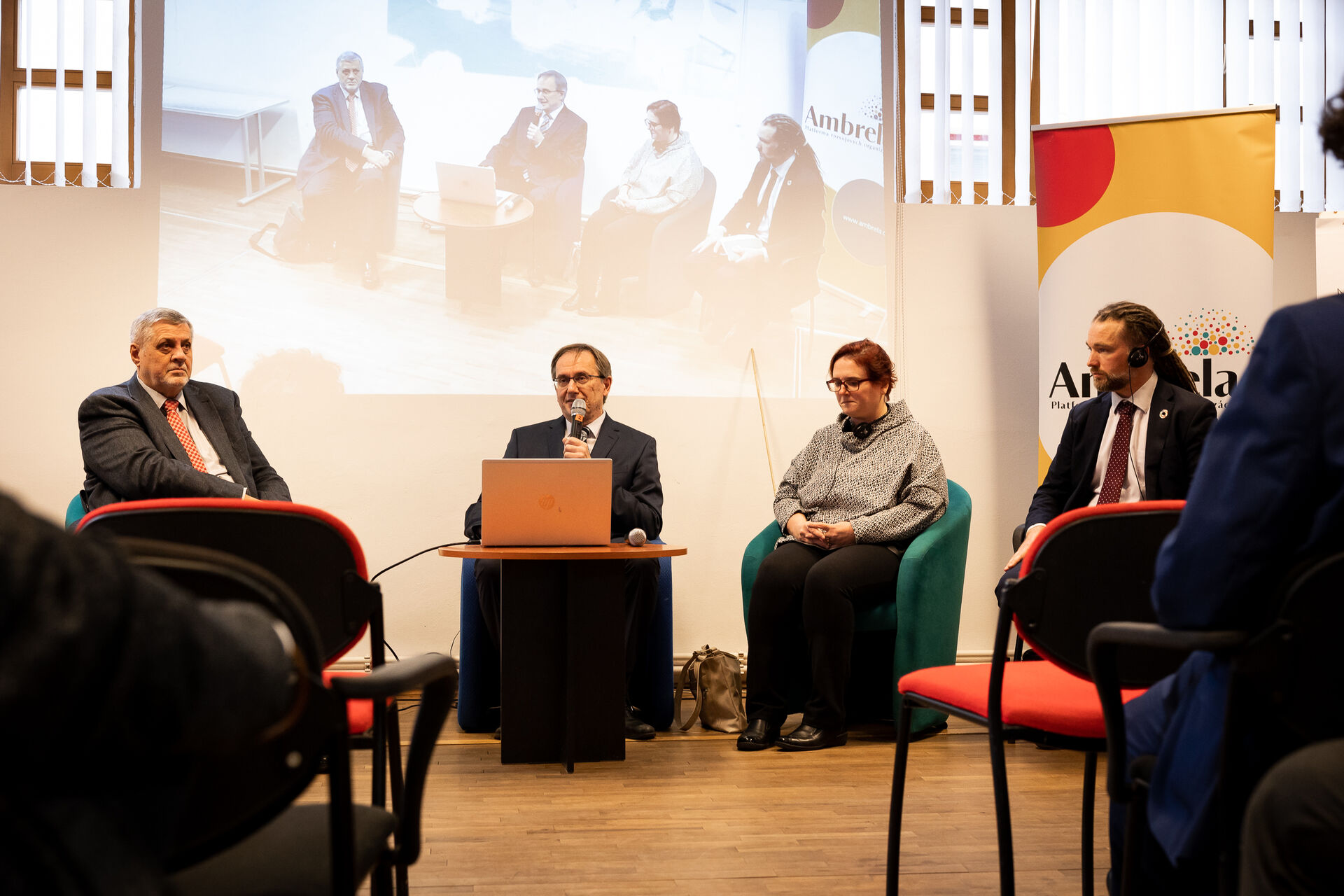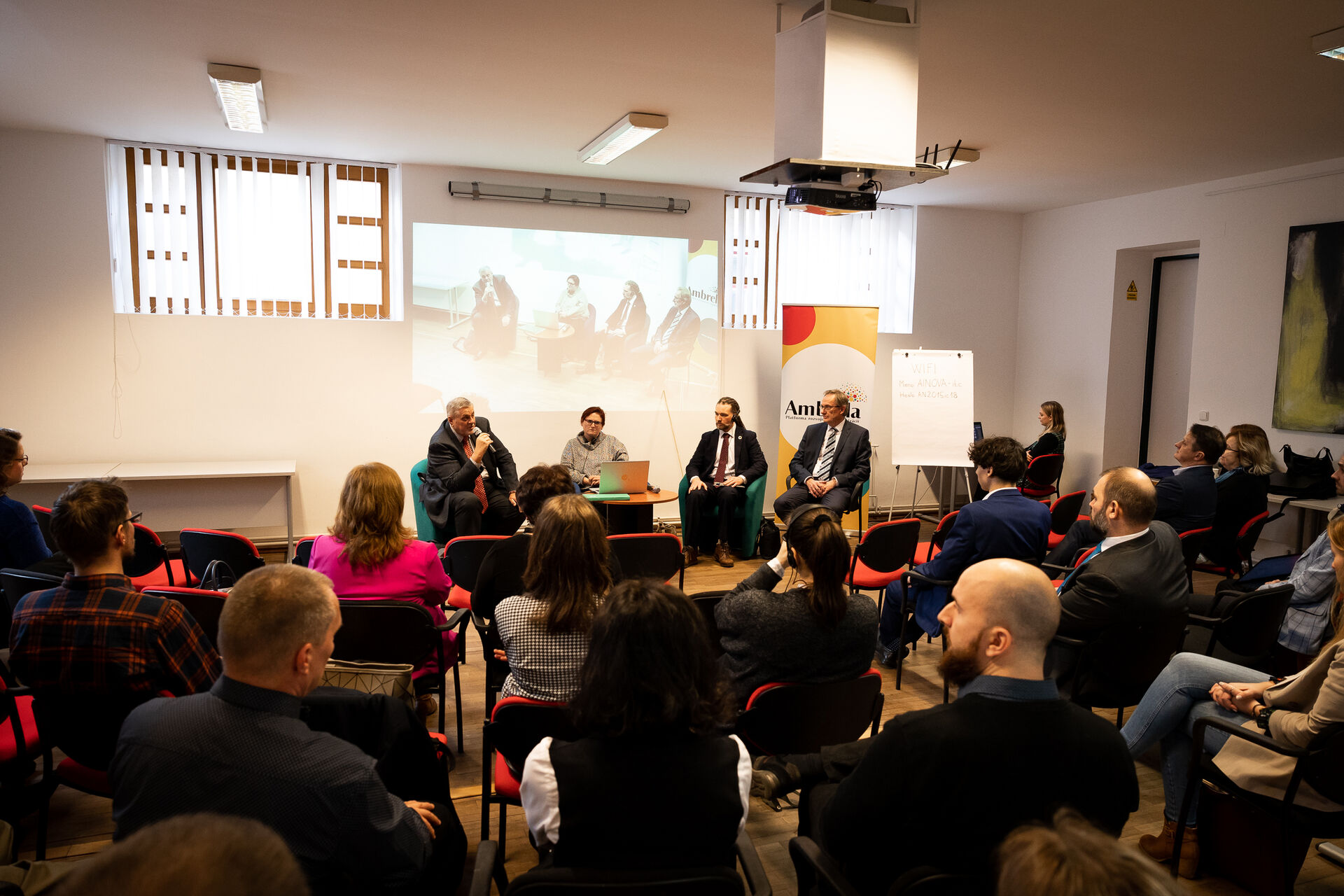As part of ongoing collaboration supported by EEA Grants – Active Citizens Fund, the Centre for Collaborative Learning for Sustainable Development has been collaborating with the Ministry of Education, Science, Research and Sport of the Slovak Republic and the NGO Ambrela – a platform for development organisations in Slovakia – on the development of the country’s new National Strategy for Global Education.
 Robert J. Didham, holder of HINNs UNESCO Chair on Education for Sustainable Lifestyles, participated in the International professional colloquium on global education as an invited international expert at Academia Istropolitana Nova in Svätý Jur, Slovakia on 29 and 30 November 2022. This event was co-organised by the Ministry of Education and the Ministry of Foreign and European Affairs of the Slovak Republic in collaboration with Ambrela. Day one of the event was focused on the promulgation of the finalised National Strategy for Global Education. Robert was a member of the opening panel discussing global challenges and their reflection in the educational system alongside Ján Kubiš (former Minister of Foreign Affairs and former Head of UN Missions in Afghanistan, Iraq, Lebanon, and Libya), Slavomír Partila (State Secretary of the Ministry of Education), and Ľubomíra Valovičová, (Associate Professor, Constantine the Philosopher University in Nitra).
Robert J. Didham, holder of HINNs UNESCO Chair on Education for Sustainable Lifestyles, participated in the International professional colloquium on global education as an invited international expert at Academia Istropolitana Nova in Svätý Jur, Slovakia on 29 and 30 November 2022. This event was co-organised by the Ministry of Education and the Ministry of Foreign and European Affairs of the Slovak Republic in collaboration with Ambrela. Day one of the event was focused on the promulgation of the finalised National Strategy for Global Education. Robert was a member of the opening panel discussing global challenges and their reflection in the educational system alongside Ján Kubiš (former Minister of Foreign Affairs and former Head of UN Missions in Afghanistan, Iraq, Lebanon, and Libya), Slavomír Partila (State Secretary of the Ministry of Education), and Ľubomíra Valovičová, (Associate Professor, Constantine the Philosopher University in Nitra).
 On day two, the colloquium was focussed on developing synergies for the implementation of this new strategy and initiate the process for preparing an Action Plan on Global Education that responds to this strategy. Robert was asked to facilitate a participatory planning workshop with a group of approximately 50 stakeholders from government, civil society, academia and schools. Through guided steps, groups worked together to define and prioritise specific targets, identify leverage points and obstacles for implementation, and to outline action points and implementation strategies.
On day two, the colloquium was focussed on developing synergies for the implementation of this new strategy and initiate the process for preparing an Action Plan on Global Education that responds to this strategy. Robert was asked to facilitate a participatory planning workshop with a group of approximately 50 stakeholders from government, civil society, academia and schools. Through guided steps, groups worked together to define and prioritise specific targets, identify leverage points and obstacles for implementation, and to outline action points and implementation strategies.



